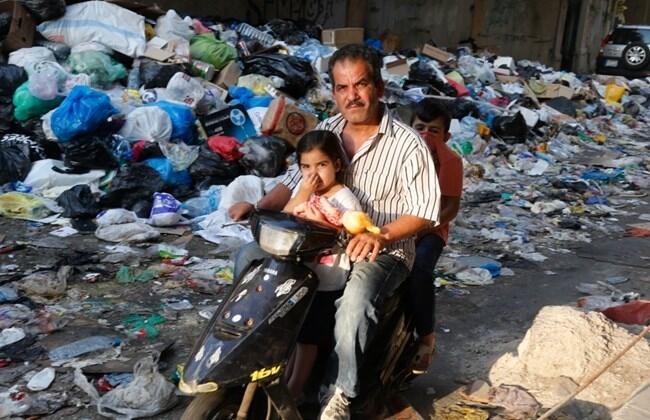“German Ambassador to Lebanon Christian Clages has welcomed the idea of exporting the garbage to Germany,” Hakim, who met the ambassador, told a local television station. “We agreed on preparing a feasibility study which will allow us to lay a road map.” Hakim said it was fine if Lebanon paid between $70 and $100 for every exported ton of garbage for six months. “It is lower than the price we used to pay over the past 30 years.” Sukleen, the former waste management contractor for Beirut and Mount Lebanon, charged around $147 for each ton, according to Environment Minister Mohammad Machnouk. The company is still providing its services to the capital in terms of collecting garbage, though its contract expired on July 17. Trash piled up in the capital and Mount Lebanon for 10 days as the government scrambled to find a disposal ground after it closed the overstuffed Naameh landfill on July 17. But with the rest of the country refusing to accept Beirut’s garbage, the Cabinet Thursday began to consider the possibility of exporting it abroad. “If I can export [Beirut’s garbage] at a reasonable price, why not? It is costing us so much to dispose of it now,” said George Ayoub, a civil engineering professor at the American University of Beirut. The Beirut Municipal Council consulted with Ayoub Thursday, before resolving to ask the Cabinet for permission to export. “If I find some entrepreneur, who has access to a lot of area, and we will share the profit, well then good. If they agree with Saudi Arabia – they have miles and miles of deserts – to take it and throw it there, then why not?” Ayoub said. Beirut officials confirmed to The Daily Star that Cabinet and the capital’s Municipal Council were studying proposals. Beirut MP Mohammad Qabbani said authorities were in talks with international firms who would not dump trash at sea. “They won’t be dumping at sea. These are international firms that have sites all over the world. We’re talking about very large ships – they can really take a large proportion [of the garbage],” he said. Exporting could open lucrative opportunities for Lebanese businesses. Roger Gemayel, a private port owner, told the National News Agency: “I’m offering my port out of my desire to see a clean Lebanon, rid of its waste.” The Lebanese Forces and the Kataeb Party expressed support. “The only serious suggestion to solve the worsening trash crisis is to export abroad,” said LF leader Samir Geagea. The Cabinet Thursday considered proposals to landfill trash in Metn and Kesrouan, where the LF is strongly represented. A scientist at theEnvironment Ministry warned Wednesday such a plan would be catastrophic to the underlying aquifers. Sukleen is currently gathering Beirut’s waste in Karantina. MayorBilal Hamad said Thursday the lot there would reach capacity in 10 days, and said finding a lasting solution was urgent. Since the Environment Ministry ordered Mount Lebanon municipalities to dispose of their own waste, with just one day’s notice on July 17, many have been dumping their trash, untreated, along streams and valleys, as they scramble to find more sustainable solutions. The Agriculture Ministry warned Friday that unregulated dumping damaged the environment and increased risk of forest fires. “Lebanon is about to face an intense heat wave,” it said in a statement. “We will clamp down on these [illegal dumping] infractions, according to the law.” The Daily Star











